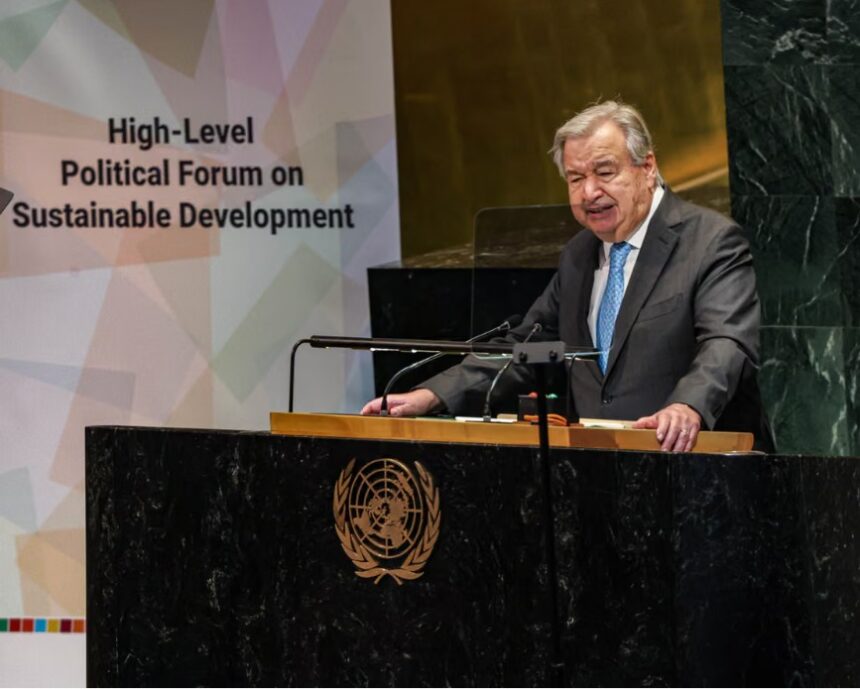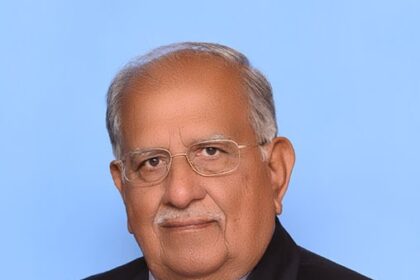**UN Secretary-General Urges World to Accelerate Clean Energy Transition, Warns Against Clinging to Fossil Fuels**
The United Nations Secretary-General has called on global leaders to take bold, immediate steps to accelerate the transition from fossil fuels to renewable energy, describing the present moment as a historic opportunity to reshape the global energy landscape. In a keynote address delivered in New York and titled “A Moment of Opportunity: Supercharging the Clean Energy Age,” the Secretary-General emphasized that the global shift toward clean energy is already underway and must be expedited to effectively tackle ongoing climate and energy crises.
Highlighting remarkable growth in clean energy investments, the Secretary-General revealed that, over the past year, spending on renewables outpaced fossil fuels by $800 billion. Technologies such as solar and wind power have achieved unprecedented cost reductions, with solar energy now 41% cheaper and offshore wind 53% cheaper than fossil fuel alternatives. Renewable sources accounted for more than 90% of new global power generation, signaling a seismic shift away from traditional energy.
Beyond environmental benefits, the transition to clean energy is driving economic transformation. According to the UN chief, the sector currently supports nearly 35 million jobs worldwide and is delivering accelerating GDP growth in major economies including India, China, the United States, and the European Union. The Secretary-General warned that economies persisting with fossil fuels risk stagnation, while those embracing renewables are positioning themselves for substantial long-term growth.
Despite these advances, the Secretary-General criticized the ongoing dominance of fossil fuel subsidies, which outweigh renewables by a ratio of nine to one. Calling for an end to fossil fuel subsidies and the implementation of a meaningful price on carbon, he stressed that such policies are essential to truly reflect the environmental and economic costs of emissions.
Energy security, the Secretary-General argued, is imperiled not by renewables but by fossil fuels, which have triggered volatile price shocks—most notably due to geopolitical crises such as the war in Ukraine. In contrast, renewable energy offers countries a pathway to greater energy sovereignty and resilience against external shocks and market fluctuations.
On the issue of energy access, the address underscored the unique advantage of renewables: they can be rapidly deployed in diverse settings, from remote villages to major urban centers, without requiring the extensive infrastructure associated with fossil fuels. The Secretary-General noted that Africa, for example, has the potential to generate ten times its energy needs through renewables by 2040.
Nonetheless, the global transition remains uneven and insufficient in scale. While OECD countries and China dominate renewable energy capacity, Africa’s share stands at only 1.5%. The UN Secretary-General called for all countries to submit ambitious new Nationally Determined Contributions (NDCs) that align climate action with sustainable development and include firm commitments to phase out fossil fuels.
To further accelerate the clean energy transition, the address outlined six priority action areas: developing strong national climate strategies; investing in modern energy infrastructure; managing demand and supply for sustainable energy; ensuring a just transition for affected workers and communities; revising trade policies to promote clean energy; and mobilizing global finance, particularly for emerging economies. Specific initiatives included the goal of powering all AI data centers with 100% renewables by 2030, supporting countries dependent on fossil fuels to diversify their economies, and reforming international financial systems to make capital more available and affordable.
Concluding the speech, the Secretary-General declared the era of fossil fuels to be “flailing and failing,” affirming that a new age of clean, affordable, and universally accessible energy has already begun. However, he cautioned that stronger political will, global cooperation, and immediate decisive action are necessary to fully realize the promise of a sustainable future.











